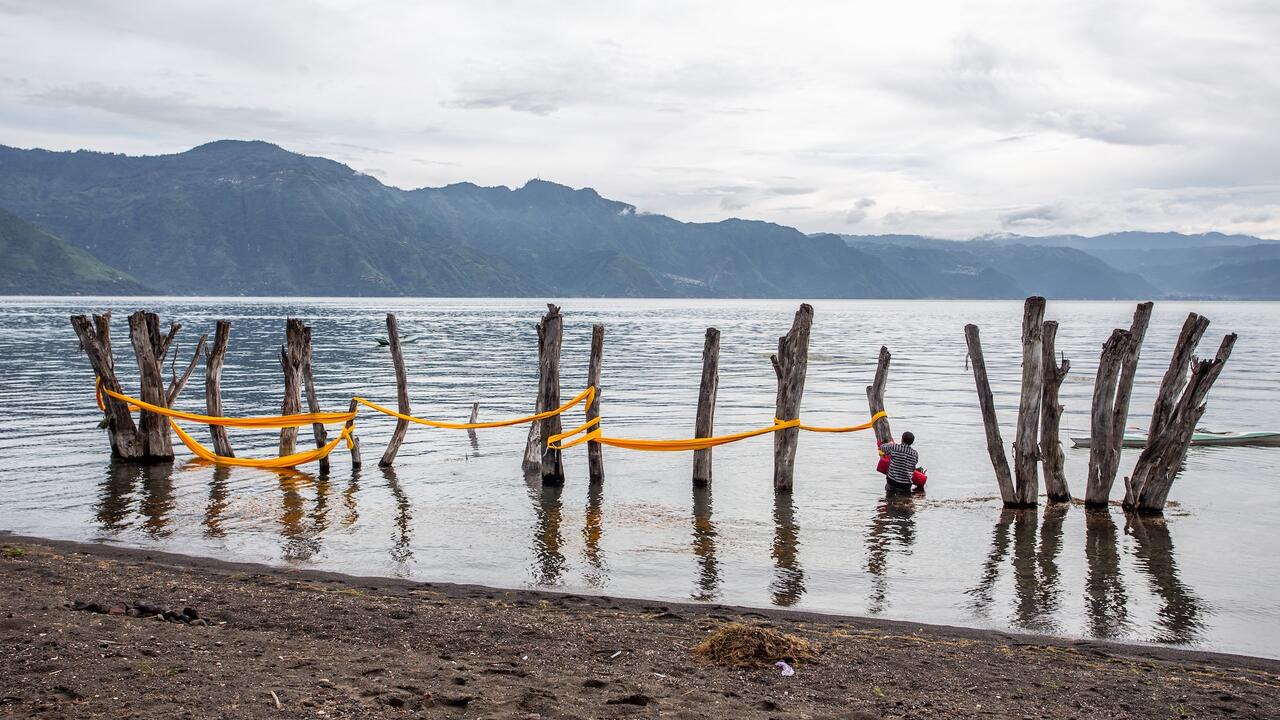Briefing
Pioneering Lebanese artist Saloua Raouda Choucair passes away aged 100; artists and institutions disrupted by Trump’s immigration ban
Pioneering Lebanese artist Saloua Raouda Choucair passes away aged 100; artists and institutions disrupted by Trump’s immigration ban

- Pioneering Lebanese artist Saloua Raouda Choucair, who came to prominence in 2013 following a major survey of her work at Tate Modern, London, has passed away at the age of 100. Choucair was born in Beirut in 1916, and remained in the city until the 1940s, when she moved to Paris to attend the École des Beaux-Arts and work in the studio of Fernand Léger. Choucair returned to Lebanon in the 1950s, and worked in relative anonymity until 2013, when her Tate Modern retrospective brought more than 120 works dating from the late 1940s to the mid-1990s to the attention of the public. Speaking to the Wall Street Journal in 2013, Choucair’s daughter Hala said: ‘She was an avant-garde who was inspired by the principles of Islamic art, but without any visual references to what people were accustomed to seeing in that art […] Therefore my mother was often misunderstood, pushed aside, ignored, and left to be on her own.’
- Following news that Asghar Farhadi, the Iranian director of The Salesman (2016), won’t attend next month’s Oscars ceremony as a result of Donald Trump’s controversial immigration ban, various artists and arts institutions are coming to terms with what the executive order might mean for them. Rachel Donadio at The New York Times reports that, in addition to major institutions such as the Los Angeles Country Museum of Art, The Metropolitan Museum of Art in New York is concerned that future projects organised in association with institutions in the Middle East will have to be cancelled, while the Sundance Institute Theater Program may have to scale back its exchange program with Middle Eastern and North African artists. Director Thomas P. Campbell, director of the Metropolitan Museum, said: ‘Scholarly exchanges and international collaborations are key to our on-going work, and we are very concerned that a number of programs we have in place could be threatened, just at a time when the world needs more, not less, exchange and mutual understanding.’
- The Helen Frankenthaler Foundation have appointed Douglas Dreishpoon, Chief Curator Emeritus at the Albright-Knox Art Gallery, Buffalo, as Director of the Helen Frankenthaler’s catalogue raisonné. Elizabeth Smith, executive director of the foundation, said: ‘Creating a catalogue raisonné of Helen Frankenthaler’s work is of the highest importance to the Foundation. Doug’s strong record of curatorial accomplishment, including important publications, make him an ideal leader for the project.’
- Plans for a new Museum of London have received a boost, after substantial pledges were made by both from the City of London Corporation, who have promised GBP£110m, and the mayor, Sadiq Khan, who has offered an additional GBP£70m. In a statement, Khan reasserted his dedication to the capital’s rich cultural history, adding: ‘The world’s greatest city deserves the world’s greatest museum.’ The new building, which has been designed by architects Stanton Williams and Asif Khan and is to be located in West Smithfield, Farringdon, will feature 8,000 square metres of permanent gallery space and an additional 1,500 square metres of temporary exhibition space.
- The Museum of Modern Art in New York has established a safe drop-in space for LGBTQ teenagers who wish to interact with art. Open Art Space, which is located within the institution’s Cullman Education and Research Building, is a weekly after-school programme involving free tours of the museum, as well as various collaborative projects devised around the interests of the participants. Speaking to the Huffington Post, Mark Joshua Epstein, an artist and educator who is involved with the initiative, said: ‘We endeavour to create a space where LGBTQ teens feel heard, supported, and recognized and we hope they can take that feeling of support with them through their daily lives.’























